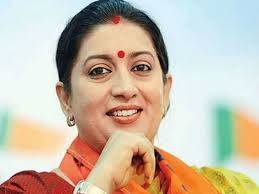Different stakeholders consultation meetings are also underway under broad topics such as cotton, silk, jute, wool, man-made fibre, handloom, handicrafts, powerloom, technical textiles, technology & machinery upgradation, infrastructure (spinning, weaving and processing), and human resource development.
Textiles minister Smriti Zubin Irani on Friday told Lok Sabha that the government is formulating a New Textile Policy for overall development of the sector including human resource development.
“Inputs from all the state governments, individuals through e-portal and different associations are being solicited,” she said.
Different stakeholders consultation meetings are also underway under broad topics such as cotton, silk, jute, wool, man-made fibre, handloom, handicrafts, powerloom, technical textiles, technology & machinery upgradation, infrastructure (spinning, weaving and processing), and human resource development.
In a separate reply, she also said the government has not received demand for a restructuring package for textile and garment units.
Textile share
Irani also informed the Lower House that the share of textiles sector to India’s gross domestic product (GDP) and GDP of manufacturing sector (at basic prices) are 2.2% and 12.22%, respectively during 2017-18 as per the National Accounts Statistics, 2018.
“Textile industry is facing some pressures and problems in the past few years like technological obsolescence, high input cost (power & capital), poor credit access, fragmented units, absence of fibre neutrality,” she said.
Mill shutdown
To another question on textile mills, the minister said that as far as NTC (National Textile Corporation) is concerned, there is no textile mills shut down/turned sick during the last three years.
34 new cotton/man-made fibre spinning/composite mills have been enlisted during the last three years till September 30, 2019. Mills have been closed in the country, over the years mainly owing to financial problems and labour related issues.

